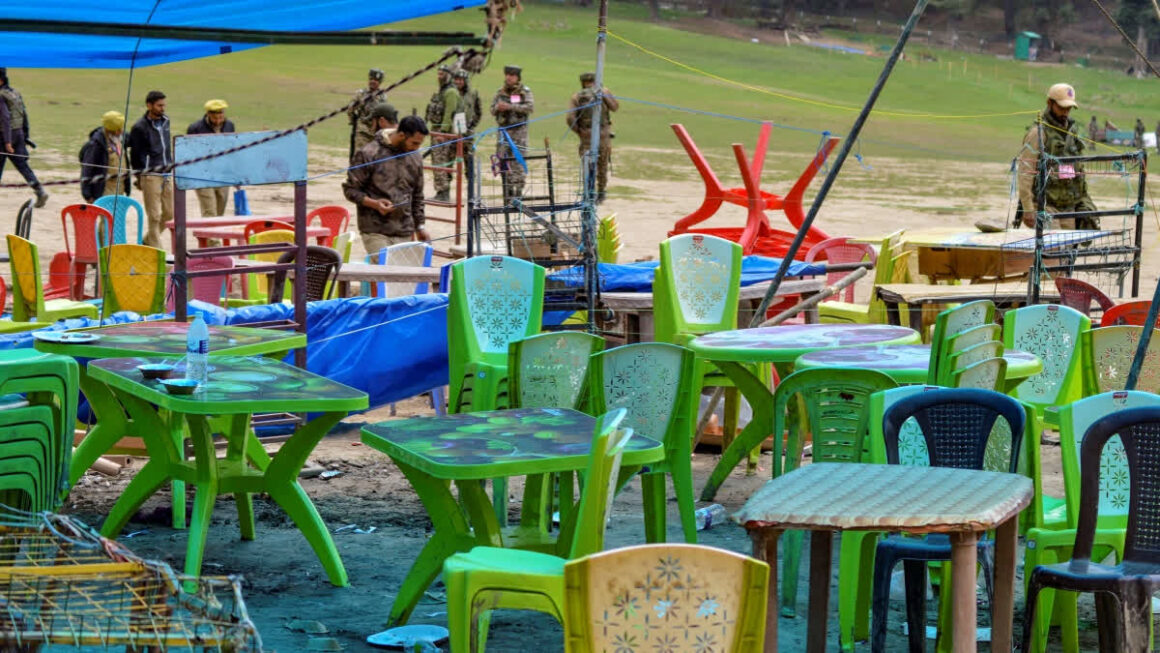Last week, as I sat on my rooftop in Rawalpindi sipping doodh-patti, the night sky offered little peace. News of a deadly attack in Indian-occupied Kashmir dominated the airwaves. Twenty-six civilians were killed in Pahalgam. But what struck me harder than the tragedy itself was how quickly India-Pakistan tensions began to rise again—loud accusations, political drama, and the all-too-familiar blame game.
A Familiar Pattern
We’ve seen this pattern before. The names change — Chittisinghpura in 2000, Pathankot in 2016, Pulwama in 2019. But the response remains the same. A brutal attack. Media frenzy. Pakistan blamed within hours.
This time, the attack happened during U.S. Vice President JD Vance’s visit to India. Was it just a coincidence? Maybe. But in this region, coincidences often carry intentions.
The India-Pakistan tensions over Kashmir and Indus Waters Treaty are not new. But they’ve become more dangerous, more personal, and more unpredictable.
Pakistan’s Response to India-Pakistan Tensions
Pakistan’s government didn’t stay silent. Defence Minister Khawaja Asif called it what it looked like — a false flag operation. Punjab’s Information Minister Azma Bokhari echoed the warning: India is laying the ground for a bigger conflict.
Even Prime Minister Shehbaz Sharif, speaking at Kakul on April 26, called for an impartial international investigation. “Let the truth come out,” he said.
But New Delhi doesn’t want truth. They want escalation.
India-Pakistan Tensions Over Water and the Indus Treaty
Following the attack, India suspended the Indus Waters Treaty. This isn’t symbolic. It’s direct aggression. Closing the Wagah border, expelling diplomats, and threatening to stop water flow into Pakistan — these are war signals.
Ministers in India aren’t hiding it anymore. From Modi to Jal Shakti officials, the message is loud: Pakistan’s rivers — the Indus, Jhelum, and Chenab — are being weaponized.
Here in Pakistan, we understand what that means. Without those rivers, our breadbasket regions would wither. Our agriculture would collapse.
The India-Pakistan tensions over Kashmir and Indus Waters Treaty are now tied to food, survival, and sovereignty.
The Language of War
Modi, at a Bihar rally, promised the attackers would be hunted “beyond imagination.” Jal Shakti Minister Shekhawat threatened not a drop of water would reach Pakistan.
Others spoke openly about taking Azad Kashmir by force.
These aren’t diplomatic words. They are battle cries.
On our side, the message is just as clear. PM Sharif warned that any water blockade would be met with “full force.” Bilawal Bhutto-Zardari went further, saying in Sukkur: “The Indus is ours. If they block it, they’ll answer for it — with blood.”
Pakistan is not posturing. Our defence systems are active. Our resolve has never been soft.
We Don’t Want War, But…
I’m not a soldier. I’m not a policymaker. I’m just someone watching all this unfold with growing fear.
We’ve lost tens of thousands in the fight against terror. We don’t need lectures on peace. We’ve already paid for it — in lives.
But peace cannot come at the cost of dignity. Or survival.
India-Pakistan tensions over Kashmir and Indus Waters Treaty are not just regional politics anymore. They are about stability, security, and human life.
Final Thoughts
As I sip the last of my tea and the call to prayer echoes across the neighborhood, one thing becomes clear: the rivers that flow through our land are not just water. They are history, identity, and life.
And if threatened, we will protect them — with our words, if possible. With strength, if we must.
[/cmsmasters_text][/cmsmasters_column][/cmsmasters_row]


Leave a Reply